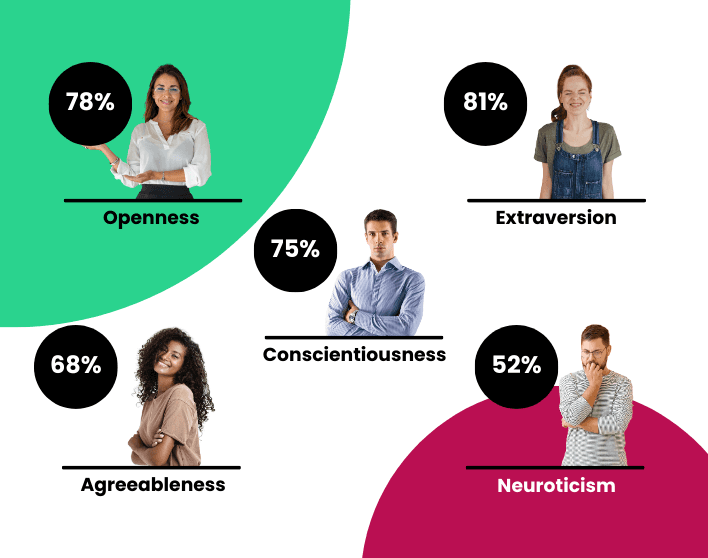Candidate Pulse: Understanding the Importance of Culture
Candidate Pulse: Understanding the Importance of Culture



As the workplace evolves, aligning organizational culture with the values and expectations of job seekers has become paramount. Our latest survey report, "Understanding the Importance of Culture," delves into the perspectives of over 3,800 candidates globally, shedding light on how cultural alignment influences job satisfaction and retention. This comprehensive analysis highlights the critical role that shared values and workplace environment play in the modern job market, providing invaluable insights for HR executives and talent managers.
This report underscores the shifting priorities among today's candidates, who increasingly prioritize cultural fit and alignment with their personal values. By exploring the methods candidates use to assess company culture and their willingness to leave if cultural misalignment occurs, the report offers strategic guidance for organizations aiming to attract and retain top talent. Through a nuanced understanding of these trends, HR professionals can enhance their talent acquisition processes and create a workplace culture that resonates deeply with employees, ultimately fostering long-term loyalty and engagement.
As the workplace evolves, aligning organizational culture with the values and expectations of job seekers has become paramount. Our latest survey report, "Understanding the Importance of Culture," delves into the perspectives of over 3,800 candidates globally, shedding light on how cultural alignment influences job satisfaction and retention. This comprehensive analysis highlights the critical role that shared values and workplace environment play in the modern job market, providing invaluable insights for HR executives and talent managers.
This report underscores the shifting priorities among today's candidates, who increasingly prioritize cultural fit and alignment with their personal values. By exploring the methods candidates use to assess company culture and their willingness to leave if cultural misalignment occurs, the report offers strategic guidance for organizations aiming to attract and retain top talent. Through a nuanced understanding of these trends, HR professionals can enhance their talent acquisition processes and create a workplace culture that resonates deeply with employees, ultimately fostering long-term loyalty and engagement.
From March to May 2024, we conducted a global survey with over 3,800 participants, asking three key questions about their views on cultural alignment and its impact on their career decisions:
From March to May 2024, we conducted a global survey with over 3,800 participants, asking three key questions about their views on cultural alignment and its impact on their career decisions:
From March to May 2024, we conducted a global survey with over 3,800 participants, asking three key questions about their views on cultural alignment and its impact on their career decisions:
How important is it for you that your values align with the company’s culture?
How likely would you be to leave a company if you found its culture to be misaligned with your values?
What’s your primary method for researching and assessing a company’s culture before applying for a job?
How important is it for you that your values align with the company’s culture?
How likely would you be to leave a company if you found its culture to be misaligned with your values?
What’s your primary method for researching and assessing a company’s culture before applying for a job?



Top takeaways:
Cultural Alignment is Crucial
A significant majority of candidates (75%) consider cultural alignment important or very important, highlighting its essential role in job satisfaction and retention.
Impact on Turnover
Many respondents (57%) are likely to leave a company if its culture misaligns with their values, demonstrating the strong impact cultural alignment has on employee turnover, especially among younger and older employees.
Research Methods for Company Culture
Candidates primarily use websites, social media, and review sites to research company culture (65%), followed by networking and word-of-mouth (25%), with only a small fraction relying on job descriptions (10%).
Fill in the form to get full access to our survey report and read all the insights:



Revolutionize Your Hiring Process with Skills-Based Precision
Experience how Bryq can transform your organization into a skills-first powerhouse. Request a demo today and see how our science-driven platform accelerates hiring, elevates quality, and fosters inclusivity—all in record time.



Revolutionize Your Hiring Process with Skills-Based Precision
Experience how Bryq can transform your organization into a skills-first powerhouse. Request a demo today and see how our science-driven platform accelerates hiring, elevates quality, and fosters inclusivity—all in record time.

Revolutionize Your Hiring Process with Skills-Based Precision
Experience how Bryq can transform your organization into a skills-first powerhouse. Request a demo today and see how our science-driven platform accelerates hiring, elevates quality, and fosters inclusivity—all in record time.
Are you a talent looking to elevate your career?
Explore your strengths and weaknesses with our free Self-Discovery Assessment.

Are you a talent looking to elevate your career?
Explore your strengths and weaknesses with our free Self-Discovery Assessment.

Are you a talent looking to elevate your career?
Explore your strengths and weaknesses with our free Self-Discovery Assessment.